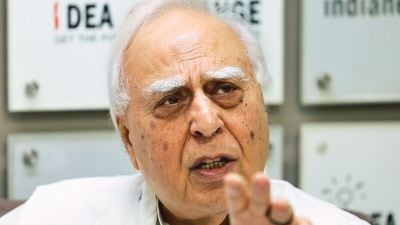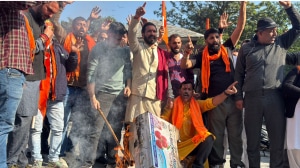Corporates have reservations on quota for SC/ST
The proposal to extend the reservation policy to the private sector, taken up enthusiastically by the Prime Minister, has been rebuffed by b...

The proposal to extend the reservation policy to the private sector, taken up enthusiastically by the Prime Minister, has been rebuffed by business houses and organisations.
Some of the biggest business groupings have said a flat ‘no’, even arguing that the move could split the country. Others have asked for tax breaks and incentives before taking up the proposal. But most have attempted to kill it with studied silence.
The Ministry of Social Justice and Empowerment had written to 218 corporate houses and associations on November 18 about the possibility of reserving some jobs in the private sector for Scheduled Castes and Scheduled Tribes.
After three months it has received just 21 replies and no unqualified support.
Some have suggested a voluntary exercise in which jobs could be found for the underprivileged. But they want this informal quota to be capped at 10 per cent. Others are willing to consider such an arrangement at the Class III and IV levels but not for managerial positions.
The major business groupings—CII, ASSOCHAM, FICCI and PHDCCI—either want incentives or are opposed to the idea of job quotas.
The PHD Chamber of Commerce and Industry has argued that job reservation in the private sector would ‘‘further divide the society on caste basis.’’
It goes on to add: ‘‘(The move) will develop the unions based on the caste system…it would seriously hamper FDI as MNCs are already insisting for liberal labour laws..’’ Highlighting that ‘‘no other country’’ propagates such reservation, the letter stated it was ‘‘once of the major causes for sickness of the PSUs.’’
Amit Mitra, secretary-general of FICCI, is slightly more accommodating. FICCI wants tax breaks for those who consciously hire from disadvantaged communities. ‘‘Our suggestion is that companies which employ a certain percentage of the SCs and STs should get some preferential treatment,’’ said Mitra.
ASSOCHAM favours training for SCs and STs but is opposed to outright reservation. Its letter to the ministry states that ‘‘preference has to be given’’ to the underprivileged ‘‘if all other things including merit is equal.’’
The CII, which has been stressing that fixing a quota is not the manner of helping the less privileged, has told the ministry that training and skill-development should be the focus areas.
On the negative response to the move, Minister of State for Social Justice and Empowerment Subbulakshmi Jagdeeshan says, ‘‘It only proves we have to continue with the dialogue process.’’
The GoM held its second meeting on Jan 17, and was appraised of the response that boils down to a clear ‘no’.


- 01
- 02
- 03
- 04
- 05





























